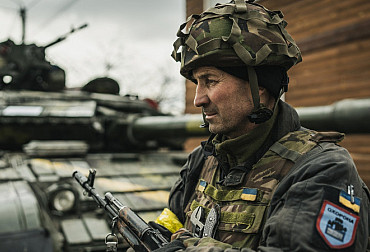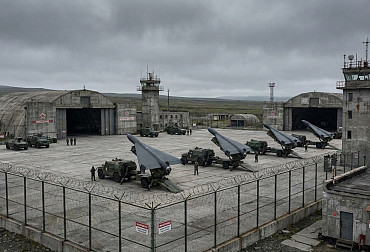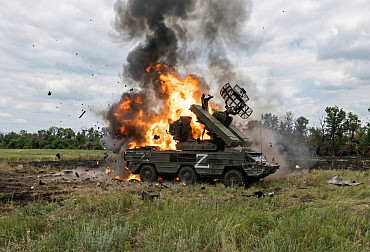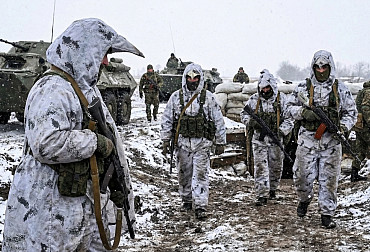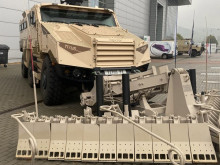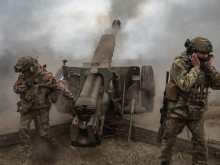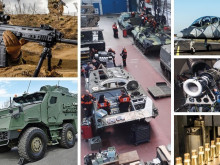Lubomír Metnar: View of defence from the perspective of the EU Presidency
From a security point of view, since the end of the Second World War, we are now living in an unprecedented time, which undoubtedly has its historical causes and must be seen in the context of the development of security crises over the last two decades. As far as the international security situation is concerned, if we look at the crises in the Middle East, the terrorist attacks that have been committed, it is clear that the security situation has deteriorated over the last twenty years. Given the geographic location of these security-war crises, European countries have lived in relative safety and peace without a deeper awareness of the causes of, and especially the reactions to, the gradually deteriorating security situation.
The turning point came in 2014, after the annexation of Crimea, when there was a real military occupation of the territory of Crimea and a gradual deterioration of the security situation in eastern Ukraine and an escalation of Russia's relationship with Ukraine. The European response to the annexation of Crimea was to adopt economic sanctions against Russia, which, however, have, with the passage of time, lost their effect. In the wake of historically established ties with Russia and Europe's economic functioning not only in terms of energy resources but also other strategic commodities, Europe has come under pressure from its established dependence on these ties. The diplomatic solutions to this situation absolutely failed on 24 February this year, and Western Europe has realised that the path set so far to resolve this Ukrainian crisis is a dead end. In the Czech Republic, but also in other European countries, there has been an awakening in the area of security and defence and a realisation of further consequences in terms of strengthening the capabilities of the individual armies of the EU Member States. Questions have arisen as to how to respond to this situation, how to increase and ensure the defence capability and modernise the professional armies of the EU countries, including our own, which have been more or less maintained so far. Suddenly, the questions of the need to increase defence budgets and the long discussions on the acquisition of military equipment for armies, as was the case in the past when defence ministries were at the forefront of cuts, have disappeared. Europe must face new challenges and threats, including terrorism, which has not disappeared. Among other things, the European Union should also strive to have more responsibility and thus become a stronger global player.
European countries have realised the need to take responsibility for their own defence. Germany, Poland, Italy, Finland and many other Member States are now planning to spend billions of euros on military purposes, despite initial peace, environmental or post-pandemic recovery plans. A major turnaround has taken place in Germany, which, after the Russian invasion of Ukraine, promised to significantly increase defence spending, promising to spend a hundred billion euros immediately and then to meet the 2% NATO commitment. Poland wants to double the number of troops, Finland is strengthening air defence. Greece and Italy are buying new weapons.
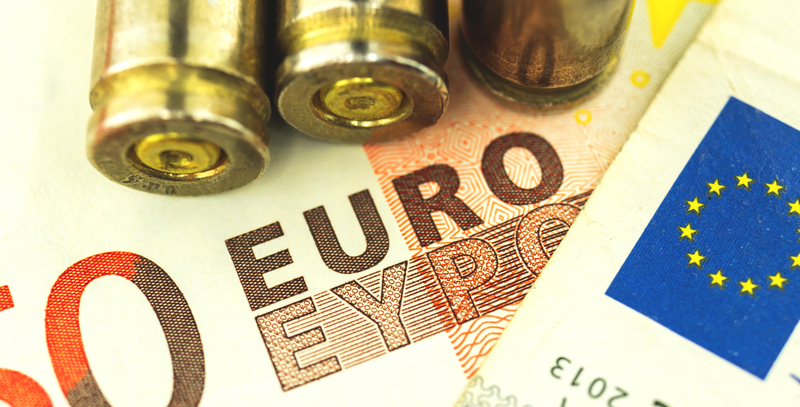 Picture: European states have realised the need to take responsibility for their own defence. Germany, Poland, Italy, Finland and many other member states are now planning to spend billions of euros on military spending, despite initial peacekeeping, environmental or post-pandemic recovery plans. (illustration photo) | Shutterstock
Picture: European states have realised the need to take responsibility for their own defence. Germany, Poland, Italy, Finland and many other member states are now planning to spend billions of euros on military spending, despite initial peacekeeping, environmental or post-pandemic recovery plans. (illustration photo) | Shutterstock
Russia's invasion of Ukraine has not only caused calls for the modernisation and rearmament of the Czech Army, but has also reinforced the Western countries' emphasis on the need to modernise, increase capabilities and rearm their armies in order to ensure sovereignty and freedom.
If we focus on building up the defence of the European Union, it is good to say that it is not just about individual governments investing more, but above all investing effectively. Duplication of investment and obstacles to procurement are particularly problematic. The European Union has long faced problems that lie in the lack of political will and consensus or coordination of activities in cooperation with the North Atlantic Alliance.
In terms of the response of EU governments to the changed security environment, the Strategic Compass is a landmark document, which is the result of the cooperation and joint efforts of EU countries to strengthen the security, defence and priority setting of the European Union. In practice, it is the first pure security and defence strategy of the European Union that contains a concrete roadmap to advance and strengthen the EU's capabilities and aims to better address existing and new security and defence challenges. The Compass covers all aspects of security and defence policy and consists of four pillars: negotiate, secure, invest and develop partnerships.
Furthermore, the need for well-equipped armies, both in terms of quality and quantity, and the need to buy not only for active use by the army but also for stockpiles, was clearly demonstrated. If these purchases were to be made in coordination with Member States, the use of the main instrument of PESCO, Permanent Structured Cooperation, would need to be substantially increased, especially in order for Member States to develop their capabilities quickly and efficiently.
In the current security situation, cyber and hybrid attacks also play a major role and must be addressed in a coordinated manner. During its Presidency, the Czech Republic should focus on developing a set of measures that will allow Member States to respond jointly to hybrid actions and threats, the so-called EU Hybrid Toolbox.
The Czech Republic is a member of the North Atlantic Alliance and its security is based on collective defence. Each individual NATO member must work to increase the capabilities and modernisation of their armies in order to be able to provide sufficient deterrence against possible attacks in the event of risks.
On the one hand, the European Union's defence policy ambitions are growing and, on the other hand, there is a growing need to return to territorial defence within NATO. One of the challenges is to ensure the coordination of cooperation between the European Union and NATO, particularly in the area of communication and information exchange. However, the development of structures in the area of the European Union's Common Security and Defence Policy should be carried out in accordance with NATO's strategic objectives.
In the light of the current security crisis, the Army of the Czech Republic faces a major challenge. The dramatically changing security situation will have to be responded to by changes in the strategic documents of the Czech Republic, where there are and will be changes in the requirements for the army both at the alliance and national level.
In view of the current situation, it is a question of the duty and responsibility of the current government to complete the modernisation we have started, and thus to build up the heavy brigade, acquiring new tracked combat vehicles and tanks, which are the backbone equipment of the heavy brigade.
At the moment, I see the security situation and ensuring the defence of the Czech Republic as essential. It is necessary to acquire new modern heavy equipment that would be able to face conventional crises, as we are seeing in Ukraine. We need to work continuously to ensure that we have a professional, modern and robust army that will ensure the defensibility of our country against possible military conflict, but at the same time we need to work on developing our security forces that ensure our internal security, especially against hybrid threats or terrorism.
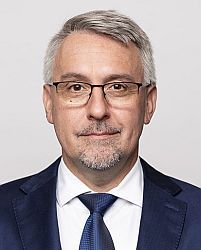
Picture: Mgr. Lubomír Metnar | PSP
Mgr. Lubomír Metnar
Lubomír Metnar was the Minister of Defence of the Czech Republic from June 2018 to December 2021, before which he served as the Minister of the Interior of the Czech Republic from December 2017 to June 2018 and as Deputy Minister of the Interior from 2013 to 2014.











